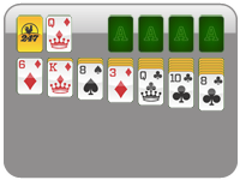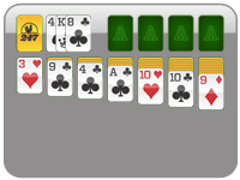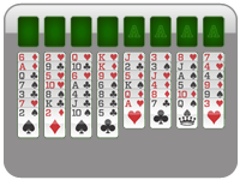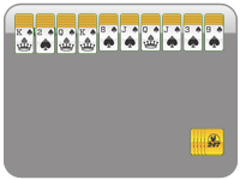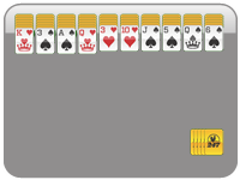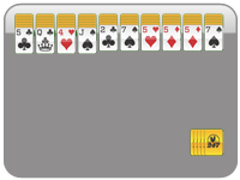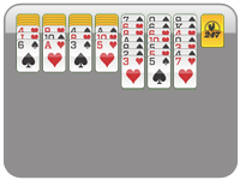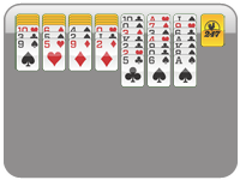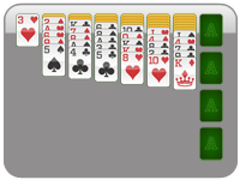Unique Ways To Gain Essential Life Skills for Career Development

Introduction
The professional world is complicated regardless of age or how long you’ve been working. The skills and experience you gain in life are essential to shaping who you are as a person and employee, and will help you navigate the complex problems of the working day and beyond. Below is a guide to strengthening these invaluable skills to assist with your professional and personal development.
The Importance of Life Skills in Career Development
There is a lot of overlap between life skills and skills that can create a successful career. From team communication, strategic planning, problem-solving, and time management, dual-purpose skills are great to hone for success in and out of the office. Let’s explore the importance of these skills and how you can strengthen them.
The what and why of life skills
When we discuss “life skills", we should be specific in our meaning. We’re talking about things like the ability to adapt to the pressures of a career and interact with your fellow professionals every day. These skills can be difficult to teach, and often they need to be learned through experience. That’s why games and activities are so great for building these skills. You can learn while you have fun.
Importance of life skills in your career
People don’t often get promoted when they don’t grow as employees. The ability and experience to continuously show your value is what propels you further in life. This applies in both our professional and personal lives. Many of our peers who seem to “have their life together" have often gained that position through constant trials, failures, and change. Failure can be scary, but it’s simply a fact of life.
Incorporating Fun and Engagement in Skill-Building

Who says learning life lessons needs to be a dour exercise? Here are ways to incorporate personal growth lessons and fun into activities in work and life.
More fun, more learning
The more engaging the activity, the more enjoyable the learning can be, and the better you absorb and retain the intended goal of the exercise. For example: if you are more of a visual learner, then setting up activities that play to your strengths can help you learn better. Try focusing on the types of activities you know you can retain more from, and use those to strengthen your skills.
Help mood, mental health, and more with fun learning
Personal improvement and fulfillment can boost your mood and mental health. Many of us become stressed when we feel stagnate in our personal or professional lives, so taking actions that give us a feeling of control can greatly reduce our stress levels and anxieties. Seems simple, but the more you’re learning and progressing towards your goals, the better you’ll feel in general. It’s a helpful cycle to enter.
Playing Games to Develop Critical Thinking and Problem-Solving Skills
Games can be great ways to develop critical thinking and problem-solving skills at any age. The reward of leveling up in a game or completing a task drives us to do more, which ups our skills even more. It’s very similar to a character in a game leveling up when they learn a new skill. Below are some tips for upping your skills while playing games!
Not just any game will do

Games can be great teachers, so look for games that focus on the skills you’re looking to strengthen. For your career, you could prioritize games that practice your cognitive and mental skills (such as Solitaire or other card games) or games with a high amount of strategy. This helps you think on your feet, and better understand complex scenarios that you can translate to real-life situations.
How these games help
These types of games help players develop critical thinking, strategic decision-making, and (if multiplayer) interpersonal communication skills. Being able to practice strategic approaches in a low-stakes virtual world lets you make mistakes without a job being on the line. You learn to stay calm and be ready for whatever is around the corner without your livelihood at stake.
Making time to improve
Like any new routine or exercise, you might want to consider dedicating time on a weekly/monthly basis to playing your favorite games. Improving your skills takes time and practice, so carving out a specific time to work on improvement is important. Once it becomes a habit, you’ll see growth quickly and clearly.
Card Games and Strategy Development
The strategic planning and tactics involved in card games make them incredible displays of skill. From adapting to an opponent’s moves to simply finding time to play with loved ones, the benefits of these games are abundant.
Practice strategy to learn strategy
Strategic card games like Solitaire or Spades require refinement through repetition. This makes them great teachers of persistence and strategy — skills beneficial for certain jobs in marketing, sales, or investment. These jobs require you to be on your toes and ready to try, fail, and try again. Solitaire lets you practice these skills without sacrificing your, or a client's, money.
From card games to the boardroom
The professional world can be something akin to a massive game of communication. We’re all playing it every day, and nobody wins by stepping on someone else. It’s only by cooperation that we can get that leg up. That’s why cooperative strategy games like Spades help us strengthen our communication and interpersonal skills. These are two extremely important skills to have in any job.
Cards games for every level
There are many different types of card games you can play to keep you focused while working on your skills. If you feel like you’ve hit a wall with one game, switch it up to help learn something new and stay on track. The need for interpersonal intuition and confidence in your abilities is important, so the more motivated you can be to improve the more likely you are to follow through.
Boosting Communication Skills Through Interactive Activities
Team activities can be a great way to boost communication skills and cooperation. They require participants to express their ideas clearly, listen actively, and work collaboratively to achieve a common goal. If you’re looking to up your team game, check out these tips for group activities that will help get you all on the same page.
Work as a team so everyone learns
Working as a team in these activities promotes mutual learning and understanding. It fosters a sense of camaraderie and promotes effective teamwork. Working in a silo can keep you from finding the best possible solution. If you’re able to hear different perspectives from your teammates, it can make you more efficient and successful. We’re not all experts, but together as a team, we can get pretty close.
Putting the work into practice
Putting the team into cooperative activities can be a great platform for learning new skills. Those skills can then be put into practice back in the working world. What you learn in an escape room or an outdoor obstacle course may not seem relevant in the boardroom at first. However, the fellowship and connection (along with teamwork and communication) everyone learns helps make every day smoother.
Online Multiplayer Games and Team Collaboration
Online multiplayer games may not seem relevant to learning any particular skills, but they are a great way to learn communication, teamwork, and strategy! They require players to work together to achieve a common goal with cooperative tactics.
Teamwork on the virtual battlefield
Online multiplayer games can help you become more acquainted with co-workers. It also gives you the benefit of being able to bond over things unrelated to work, potentially strengthening your collaborative skills. When the team is put into an entertaining, virtual, low-stakes scenario, you can have fun while you work together.
Communication online and offline
The communication skills developed in online multiplayer games are easily translated to the real world — especially in a remote working environment. They can enhance one's ability to communicate effectively in different settings and with different people.
Building Emotional Intelligence Through Role-Playing and Simulations
Role-playing games (such as Dungeons & Dragons (DnD)) are becoming increasingly popular among younger generations. But no matter your age, they can help you learn key professional skills. Here’s why, and how they can be used even in the workplace.
Emotional intelligence in the workplace

Emotional intelligence is having control over one’s own emotions and empathy for the emotions of others. When you’re more sensitive toward others' needs, preferences, and desires, it helps the team stay close together. Having well-developed emotional intelligence also keeps you cool under pressure and always looking out for the best in others.
Role-playing and emotional intelligence
Role-playing games have become a massively popular teacher for all demographics because of the honest emotional intelligence needed to play. Even therapists have recognized the capacity for emotional discovery and life skill development with games like DnD. Set up a casual DnD night with your teammates, and see how much stronger your team bond and communication skills become.
Empathy-Building Exercises
To better understand ourselves we should seek to understand those around us. That’s why empathy-building exercises are so important for workplace development. Below are some reasons why it can be so beneficial.
Gain empathy for better emotional intelligence
Emotional intelligence isn’t just how you handle your own emotions. It also is how you’re able to manage and understand the emotions of those around you. Empathy is an important factor in understanding your peers and effectively cooperating with them. It makes you and everyone around you do your jobs better when you can trust your teammates to have your back in difficult situations.
Some games for empathy-building
Games that place yourself in other people’s shoes and experiences help build empathy towards them. Games such as Two Truths and a Lie or Hot Seat at the office party, or cooperative card games are fun ways to learn about others and build your empathy towards your fellow peers. Give them a shot at your next company meeting!
Working on yourself works for work
Building up your brand and finding new life skills to show off in your work is an excellent way to feel a sense of accomplishment and fulfillment. Plus, everyone is more inclined to learn when they’re having fun, so don’t be afraid to enjoy learning! Also, bring your team along because when your team benefits the whole office benefits. Start with some of the great games we have at 247 Solitaire!
Solitaire Games
More Solitaire Games
More Games
Solitaire News
Disclaimer
DISCLAIMER: The games on this website are using PLAY (fake) money. No payouts will be awarded, there are no "winnings", as all games represented by 247 Games LLC are free to play. Play strictly for fun.

